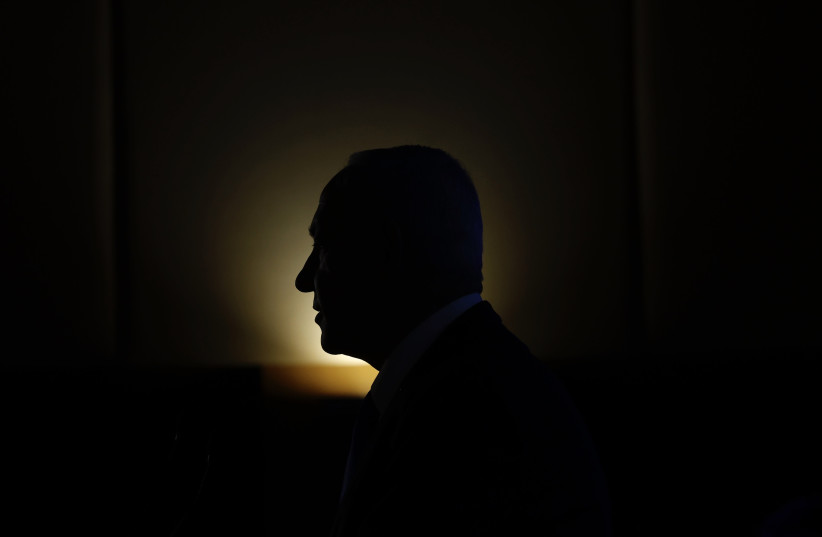Having been in Cape Town, the city of my birth, for the previous week and seeing the relative calm and tranquility all around as people of mixed races frolic joyfully together at the beach and at restaurants or jogging on the magnificent Sea Point beach promenade that stretches for a few kilometers along the coastline, as well as living peacefully in mixed neighborhoods, including the one where I was born and lived for almost 20 years, it was all as if South Africa’s horrific history never happened. The rhetorical question begs itself: At the end of the day, what was the long, ongoing trauma of apartheid all about? And more importantly, why?
I asked myself, friends and former colleagues this question several times these past few days as I reflected on the unfolding tragedy in the country that I cherish and love, and where I have lived for almost 25 years. Israel seems to be teetering precariously on a knife’s edge, law and order have broken down and from a distance, it seems even worse.
And trying to be as balanced and non-ideological as I possibly can be, I have to conclude that unfortunately, Netanyahu has empowered and unleashed this existential crisis and chaos. From the attempts to shackle and eviscerate the Supreme Court, to the appointment of ministers who have added fuel to the flames of our rapidly deteriorating security situation and to normalizing racist rhetoric and policies, the buck categorically stops with him.
Ergo it follows that in order to save this worsening-by-the-day situation, he has to go. And I say this sadly and painfully as someone who in the past admired his accomplishments but never him.
Of course, I am not so naive to believe that when and if he steps down, all will be miraculously healed, and peace and kumbaya will break out. However, to lower the flames, he who started and initiated this blazing inferno, this civilian war, this arsonist who poured oil on the already raging fire between Israelis and Palestinians and who is challenging our resilience and sustainability as a people and as a country, should either step down gracefully or be shown the door.

In the latter scenario, the only possible solution as I see it is for a group of moderate Likudniks, five to six will be enough, to bravely follow Ariel Sharon’s bold move when he broke away from the Likud party in 2005 to form the Kadima party. Such a political earthquake would realign the political map dramatically and the ensuing government coalition would coalesce around more moderate and centrist positions that most Israelis would feel comfortable with and would hopefully accomplish some form of peace in our time.
THE QUESTION in essence revolves around the following: Surely, not all Likud members when they see and experience what’s happening around us can be genuinely satisfied with the current disastrous state of affairs. What would it take for someone from Likud to say boldly and courageously, “Enough! So much and no more. I can’t stomach this any further. I and the country have reached a breaking point. If I don’t exhibit the leadership that is required of me now, if I don’t rise to the occasion even if it means I have to fall on my sword for the sake of our country, how can I ever look my children and grandchildren in the face when they ask me, ‘And what did you do during the war daddy?’ and I, I shamefully say that I did nothing, that I was just a bystander.”
Dan Meridor, a former Likud minister, likened members of the Likud party to silent fish in an aquarium, implying that they are almost in a state of torpor and paralysis who see no evil, hear no evil and speak no evil.
Expressing leadership
Who among the Likudniks will exhibit the leadership qualities of courage and bravery and be the Nahshon who will fearlessly jump into the swirling seas, raging torrents and treacherous undertow and save us?
As I sit here in Sea Point overlooking the royal blue, shimmering waters of the cold Atlantic Ocean, it is, of course, easy from a distance to pontificate but having seen and experienced the ease with which South Africans of all persuasions get along socially, will we in Israel ever reach a stage where we can look back and say with all honesty and conviction, “What was this all about? Why? And more importantly, what part did I play?” And will our fellow citizens and neighbors similarly engage in reflection and say “Al Chet,” beating their breasts in recognition that they have sinned?
The writer, a former headmaster of Herzlia High School in Cape Town, also headed Jewish day schools in Toronto and Vancouver. His aliyah professionally has been bookended by working at Yad Vashem in the International Relations Department and at the American Jewish Joint Distribution Committee (JDC) where he served for 17 years as the executive director of overseas joint ventures.
